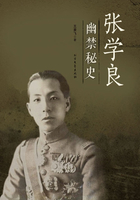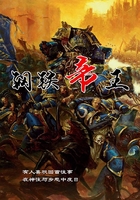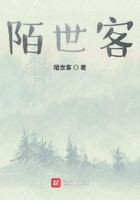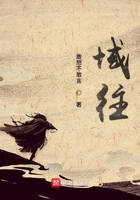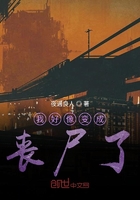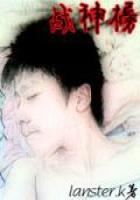The beautiful city of Budapest was fairly bursting into blossom。 Across the river, on the hills, lilacs were blooming in every garden。Every night the tempestuous Hungarian audience acclaimed me with frenzy, throwing their caps on the stage and crying:“Eljen。”
One night, with the vision of the river flowing and rippling in the sunshine as I had seen it that morning, I sent word to the director of the orchestra, and, at the end of the performance, improvised“The Blue Danube”of Strauss。 The effect was an electric shock。The whole audience sprang to their feet in such a delirium of enthusiasm that I had to repeat the waltz many times before they would behave less like mad people。
That evening there was in the audience, calling aloud with the rest, a young Hungarian of god?like features and stature, who was to transform the chaste nymph that I was into a wild and careless bacchante。Everything conspired for the change。The spring, the soft moonlight nights, and, when we left the theatre, the scent of the air, heavy with the perfume of the lilacs。The wild enthusiasm of the audience and the first suppers that I had ever eaten in company with absolutely care?free and sensual people;the music of the gypsies;the Hungarian goulash, favoured with paprika, and the heavy Hungarian wines—it was, indeed, the first time in my life that I was nourished, over?nourished, and stimulated with an abundance of food—all brought about the frst awareness of my body as something other than an instrument to express the sacred harmony of music。My breasts, which until then had been hardly perceptible, began to swell softly and astonish me with charming but embarrassing sensations。My hips, which had been like a boy’s, took on another undulation, and through my whole being I felt one great surging, longing, unmistakable urge, so that I could no longer sleep at night, but tossed and turned in feverish, painful unrest。
One afternoon, at a friendly gathering, over a glass of golden Tokay, I met two large black eyes that burned and glowed into mine with such ardent adoration and Hungarian passion that in one look was all the meaning of the spring in Budapest。 He was tall, of magnificent proportions, a head covered with luxuriant curls, black, with purple lights in them。Indeed, he might have posed for the David of Michael Angelo himself。When he smiled, between his red, sensual lips, gleamed strong, white teeth。From our frst look every power of attraction we possessed rushed from us in mad embrace。From that first gaze we were already in each other's arms, and no power on earth could have prevented this。
“Your face is like a flower。 You are my flower,”he said, and over and over again he repeated,“My flower—my fower,”which in Hungarian means angel。
He gave me a small square of paper on which was written“Loge for the Royal National Theatre。”That night Mother and I went to see him play Romeo。 He was a fine actor, and became the greatest in Hungary。His interpretation of Romeo's youthful fame achieved my conquest。I went to see him afterwards in his dressing?room。The whole company eyed me with curious smiles。Everyone seemed to know already, and to be pleased。Only one, an actress, didn’t seem pleased at all。He accompanied my mother and me to the hotel, where we had a little supper, as actors never dine before the play。
Afterwards, when my mother thought I was sleeping, I returned and met my Romeo in the salon of our apartment, which was separated from our bedroom by a long corridor。 Then he told me that he had, that night, changed his interpretation of the part of Romeo。“I used to vault over the wall and begin at once to declaim in quite an ordinary voice:
“He jests at scars that never felt a wound,
But, soft, what light through yonder window breaks?
It is the East, and Juliet is the Sun。”
But tonight, you remember, I whispered the words as if they choked me, for, since I met you, I know what love would do to Romeo's voice。 Only now do I know。For, Isadora, you have made me for the first time know what Romeo's love was like。Now I will play the entire part differently”;and he rose and repeated for me, scene forscene, the entire role, often stopping to say:“Yes, I see now that if Romeo really loved he would say it thus and thus—quite differently from what I imagined when first I played the part。Now I know。Ah……adored, fower?faced girl, you have inspired me。By this love I will become indeed a great artist。”So he declaimed the part of Romeo to me till the dawn crept in at the window。
I watched, and listened to him in raptures。 Now and then I even ventured to give him the réplique, or suggest a gesture, and, in the scene before the Friar, we both knelt down and swore fidelity till death。Ah, youth and spring, and Budapest and Romeo!When I remember you, it does not seem so far away, but just as if it all happened last night。
One evening, after his theatre and mine, we went into the salon quite unknown to my mother, who thought I was safe asleep。 At frst Romeo was happy just reciting his roles, or speaking of his art and the theatre, and I was quite happy listening to him, but gradually I noticed that he seemed troubled, and at times quite upset and speechless。He clenched his hands and appeared to feel quite ill, and at such times I noticed that his beautiful face became quite congested, his eyes inflamed, his lips swollen, and he bit them till the blood came。
I myself felt ill and dizzy, while an irresistible longing to press him closer and closer surged in me, until, losing all control and falling into a fury, he carried me into the room。 Frightened but ecstatic, the realisation was made clear to me。I confess my first impressions were a horriblefright, but a great pity for what he seemed to be sufering prevented me from running away from what was at first sheer torture。
That morning at dawn we left the hotel together, and, taking a belated two?horse carriage, which we found in the street, we drove miles out, into the country。We stopped at a peasant’s hut, where the wife gave us a room with an old?fashioned four?poster bed。All that day we remained in the country, Romeo frequently hushing my cries and drying my tears。
I'm afraid I gave the public a very bad performance that evening, for I felt quite miserable。 When, however, I met Romeo afterwards in the salon, he was in such a state of joy and elation that I felt repaid for all my suffering, and only desired to recommence, especially as he assured me tenderly that I would finally know what Heaven was on earth。A prophecy which was soon fulfilled。
Romeo had a beautiful voice, and he sang to me all the songs of his country and the songs of the gypsies, and taught me the words and meaning。 One night, Alexander Gross having arranged for me a gala evening at the Budapest Opera House, I had the idea, after the programme of Gluck's music, to bring on the stage a simple Hungarian Gypsy Orchestra and dance the songs of the gypsies。One especially was a song of love。It went thus:
Csak egy kis lány
van a világon
Az is az éi draga
galabom
A jó Isten de nagyon
zerethet
Hogy én nékem adott tégedet。
which when translated means:
One little girl in the world exists。
She is my dear pigeon。
The good Lord must love me well
Because he gave me you。
A sweet melody, full of passion, longing, tears, adoration。 I danced with such emotion as to bring the vast audience to tears, and I ended with the Rakowsky March, which, in my red tunic, I danced as a Revolutionary Hymn to the Heroes of Hungary。
The gala ended the Budapest season, and the next day Romeo and I ran away for a few days in the country, staying in the peasant's hut。 We knew for the first time the joy of sleeping all night in each other's arms, and I had the unsur?passed joy of waking at dawn to fnd my hair tangled in his black scented curls, and to feel his arms around me。We returned to Budapest, and the first cloud in this Heaven was the anguish of my mother, and the return from New York of Elizabeth, who seemed to think I had committed some crime。The anxiety of both of them was so unbearablethat at length I persuaded them to go for a little trip to the Tyrol。
It was then, and always has been, the experience of my temperament that, no matter how violent the sensation or passion, the brain worked at the same time with a lightning and luxurious rapidity。 I have, therefore, never, in the slang sense, lost my head;on the contrary, the more acute the pleasure of the senses, the more vivid the thought, and when this reaches the state where the brain is the direct critic of the senses, disappointing and even insulting the pleasure for which the will to live clamours, the confict is such as to lead to a longing of the will for some soporifc to dull the incessant unwanted commentary of the intelligence。How I envy those natures which can give themselves entirely to the voluptuousness of the moment, without fear of the critic who sits aloft and separates and insists upon interjecting his view, when least wanted, to the coupled senses beneath。
And yet there comes always the moment when, capitulating, the brain cries,“Yes。 I admit all else in life, including your art, is as vapour and nonsense to the glory of this moment, and, for this moment, willingly I abdicate to dissolution, destruction, death。”So this defeat of the intelligence is the final convulsion and sinking down into nothingness that often leads to the gravest disasters—for the intelligence and the spirit。
So it was that, having learnt the desire, the gradual approach of the ultimate madness of these hours, leadingto the crucial and furious abandon of this final moment, I no longer recked of the possible ruin of my Art, the despair of my mother, or the ruin and loss of the world in general。
Let those judge me who can, but rather blame Nature or God, that He has made this one moment to be worth more, and more desirable, than all else in the universe that we, who know, can experience。 And naturally, just as the fight is high, so the crash of awakening is terrible。
Alexander Gross arranged for me a tour through Hungary。 I gave performances in many towns, including Sieben Kirchen, where I was impressed by the story of the hanging of the seven Revolutionary Generals。In a great open feld outside the town I composed a march in honour of those Generals, to the heroic and sombre music of Liszt。
Throughout this trip I received a wonderful ovation from the audiences in all these little Hungarian towns。 In each of them Alexander Gross had a victoria waiting with white horses, and filled with white flowers, and I, dressed all in white, in the midst of cheers and shouts, was conducted through the town like some young visiting goddess from another world。But, in spite of the ecstasy which my Art gave me, and the adulation of the public, I sufered continually with intolerable longing for my Romeo, especially at night when I was alone。I felt I would give all this success, and even my Art, for one moment in his arms again, and I ached for the day of my return to Budapest。The day came。Romeo certainly met me at the station with ardent joy, but I felt some strange change in him, andthen he told me he was about to rehearse and make his debut as Mark Antony。Was it that the artistic, intense temperament was so influenced by this change of r le?I don't know, but I did know that the first naive passion and love of my Romeo had changed。He spoke of our marriage as if it had already been definitely decided。He even took me to see some apartments, to choose one in which we should live。Inspecting bathroomless fats and kitchens up endless fights of stairs, I felt a strange chill and heaviness。
“What shall we do, living in Budapest?”I queried。
“Why,”he replied,“you will have a box each night to see me act, and then you will learn to give me all my répliques and help me in my studies。”
He recited to me the part of Mark Antony, but now all the passionate interest centred in the Roman populace, and I, his Juliet, was no longer the central interest。
One day, during a long stroll in the country, sitting by the side of a haystack, he fnally asked me if I did not think I should do better to continue my career and leave him to his。 These were not his exact words, but that was his meaning。I still remember the haystack and the field before us, and the cold chill that struck my breast。That afternoon I signed a contract with Alexander Gross for Vienna and Berlin, and all the cities of Germany。
I saw Romeo's debut in Mark Antony。 My last vision of him was the mad enthusiasm of the theatre audience, while I sat in a box swallowing my tears and feeling as if I had eaten bushels of broken glass。The next day I left forVienna。Romeo had vanished。I said good?bye to Mark Antony, who seemed stem and so preoccupied that the journey from Budapest to Vienna was one of the bitterest and saddest I ever experienced。All joy seemed suddenly to have left the universe。In Vienna I fell ill, and was placed by Alexander Gross in a clinic。
I spent several weeks in utter prostration and horrible suffering。 Romeo came from Budapest。He even made his cot in my room。He was tender and considerate, but awakening one morning at dawn, seeing the face of the nurse, a Catholic nun, banded in black, separating me from the form of my Romeo on the cot across the room, I heard the knell of Love's funeral。
I was a long time convalescing, and Alexander Gross took me to recover in Franzensbad。 I was languid and sad, refusing to be interested either in the beautiful country or the kind friends about me。Gross's wife had come, and she tended me kindly through sleepless nights。Fortunately for me, probably, the expensive doctors and nurses had exhausted the bank account, and Gross arranged performances for me in Franzensbad, Marienbad, and Carlsbad。So one day I opened my trunk again, and took out my dancing tunics。I remember bursting into tears, kissing my little red dress in which I danced all my Revolutionary dances, and swearing never to desert Art for love again。By this time my name had become magic in the country, and I remember one night, when I was dining with my manager and his wife, the crowd before the plate glasswindow of the restaurant became so dense that they broke the vast window, to the despair of the hotel manager。
The sorrow, the pains, and disillusions of love, I trans?formed in my Art。 I composed the story of Iphigenia, her farewell to Life on the Altar of Death。Finally Alexander Gross arranged for my appearance in Munich, where I rejoined my mother and Elizabeth, who were delighted to see me again alone, although they found me changed and saddened。
Before I appeared in Munich, Elizabeth and I went to Abbazia and drove up and down the streets hunting for hotel accommodation。 Unable to find any, and having attracted considerable attention in this peaceful little town, we were seen by the Grand Duke Ferdinand, who was passing。He became interested, and greeted us sympathetically。Finally he invited us to stay at his villa in the garden of the Hotel Stephanie。The whole episode was one of complete innocence, but it created a great scandal in Court circles。The grand ladies who soon began to call upon us were not at all inspired by interest in my Art, as I naively imagined at the time, but by the desire to discover our real status at the Duke's villa。These same ladies made deep curtseys every night before the Grand Duke's table in the hotel dining?room。I followed the custom, curtseying more deeply than the others were able to do。
It was then that I inaugurated a bathing costume which has since become popular—a light blue tunic of finest crepe de Chine, low necked, with little shoulder straps, skirt just above the knees, with bare legs and feet。 As the custom of the ladies of that epoch was to enter the water severly garbed in black, with skirt between the knees and ankle, black stockings, and black swimming?shoes, you can well imagine the sensation I created。The Grand Duke Ferdinand used to promenade the diving bridge with opera glasses, which he riveted on me, murmuring in perfectly audible tones,“Ach, wie sch?n ist diese Duncan。Ach;wunder sch?n!Diese Frühlingzeit is nicht so sch?n wie sie。”
Some time afterward, when I danced at the Carl Theatre in Vienna, the Grand Duke, with his suite of handsome young aides?de?camp and lieutenants, came every night to the stage box, and naturally people talked。But the Duke’s interest in me was purely aesthetic and artistic。Indeed, he seemed to shun the society of the fair sex, and was quite content with his entourage of beautiful young officers。I felt great sympathy for H。R。H。Ferdinand when I heard some years later that the Austrian Court had made a decree incarcerating him in a gloomy chateau in Salzburg。Perhaps he was a bit different from other people, but what really sympathetic person is not a little mad?
At that villa in Abbazia there was a palm?tree before our windows。It was the frst time I had seen a palm?tree growing in a temperate climate。I used to notice its leaves trembling in the early morning breeze, and from them I created in my dance that light fluttering of the arms, hands, and fngers which has been so much abused by my imitators;for they forget to go to the original source andcontemplate the movements of the palmtree, to receive them inwardly before giving them outwardly。Often as I gazed at this palm?tree all artistic thoughts left me, and I remembered only the moving lines of Heine:
A lonely palm in the South……
From Abbazia, Elizabeth and I went to Munich。 At that time all the life of Munich centred around the Kiinstler Haus, where the group of masters—Karlbach, Lembach, Stuck, etc。—gathered each evening to imbibe the fine Münchener beer and discourse upon philosophy and art。Gross wished to arrange for my debut in the Künstler Haus。Lembach and Karlbach were willing, only Stuck maintained that dancing was not appropriate to a Temple of Art like the Munich Künstler Haus。One morning I went to fnd Stuck at his house, in order to convince of him of the worthiness of my Art。I took of my dress in his studio, donned my tunic, and danced for him, then talked to him for four hours without stopping on the holiness of my mission and the possibility of the dance as an Art。He often told his friends afterwards that he was never so astonished in his life。He said he felt as if a dryad from Mount Olympus had suddenly appeared from another world。Of course he gave his consent, and my debut at the Munich Künstler Haus was the greatest artistic event and sensation that the town had experienced in many years。
Afterwards I danced at the Kaim Saal。 The studentswent fairly crazy。Night after night they unharnessed the horses from my carriage and drew me through the streets, singing their student songs and leaping with lighted torches on either side of my victoria。Often, for hours, they would group themselves outside the hotel window and sing, until I threw them my flowers and handkerchiefs, which they would divide, each bearing a portion in their caps。
One night they bore me of to their student café,where they lifted me dancing from one table to another。All night they sang, and frequently came the refrain,“Isadora, Isadora, ach, wie sc?hn das Leben ist。”This night, when recorded in Simplissimus, shocked some of the sober people of the town, but it was really a most innocent“rag,”in spite of the fact that even my dress and shawl were torn to ribbons and worn in their caps when they carried me home at dawn。
Munich was, at that time, a veritable beehive of artistic and intellectual activities。 The streets were crowded with students。Every young girl had a portfolio or music roll under her arm。Every shop window was a veritable treasury of rare books and old prints, and fascinating new editions。This, coupled with the marvellous collections of the museums, the crisp autumn air blowing from the sunny mountains, the visits to the studio of the silver?haired Meister, Lembach, the frequenting of masters in philosophy, such as Carvelhorn and others, inspired me to return to my interrupted intellectual and spiritual conception of life。I began to study German, to read Schopenhauer and Kant inthe original, and I could soon follow with intense pleasure the long discussion of the artists and philosophers and musicians who met each night in the Künstler Haus。I also learnt to drink the good Munich beer;and the recent shock to my senses was somewhat calmed。
One night at a special gala artistic performance at the Künstler Haus I was aware of a remarkable silhouette of a man sitting in the first row applauding。This silhouette recalled to mind that of the great master whose works were then being revealed to me for the first time。The same overhanging brow, prominent nose。Only the mouth was softer and possessed less strength。After the performance I learned that this was Siegfried Wagner, the son of Richard Wagner。He joined our circle, and I had for the first time the pleasure of meeting and admiring one who was thereafter to count among my most treasured friends。His conversation was brilliant, with frequent recollections of his great father, which seemed to be always about his person as a sacred halo。
I was then, too, for the first time reading Schopenhauer, and I was carried away by the revelation of his philosophic enlightenment of the relation of music to the will。
This extraordinary spirit, or, as the Germans called it, geist, of the feeling of holiness, der Heiligthum des Gedankes(the holiness of thought),that I met, made me often feel as if I had been introduced into a world of superior and God?like thinkers, the working of whose brains was far vaster, holier, than any I had encounteredin the world of my travels。Here, indeed, the philosophic conception seemed to be regarded as the highest point of man’s satisfaction, only to be equalled by the still holier world of music。In the Munich museums the glorious works from Italy were also a revelation to me, and, realising how close we were to the borderline, following an irresistible impulse, Elizabeth, my mother, and I took the train for Florence。

